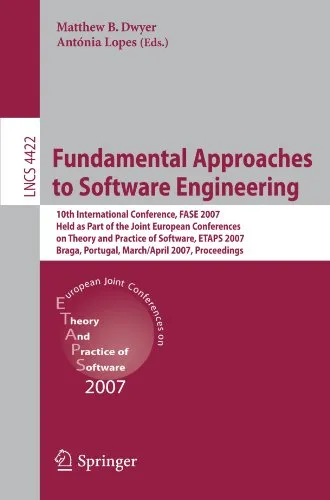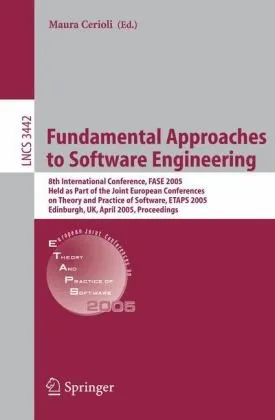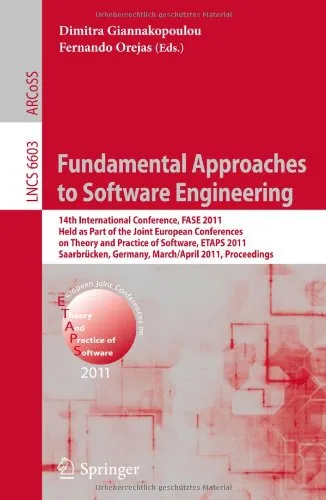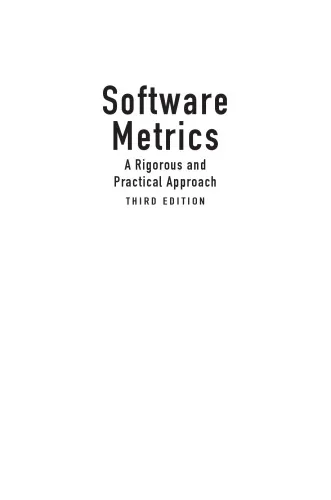Fundamentals of Software Engineering: 5th International Conference, FSEN 2013, Tehran, Iran, April 24-26, 2013, Revised Selected Papers
4.0
Reviews from our users

You Can Ask your questions from this book's AI after Login
Each download or ask from book AI costs 2 points. To earn more free points, please visit the Points Guide Page and complete some valuable actions.Related Refrences:
Introduction to "Fundamentals of Software Engineering: FSEN 2013"
Software engineering is a field that continues to evolve rapidly, addressing emerging challenges while creating innovative solutions for complex systems. The book, “Fundamentals of Software Engineering: 5th International Conference, FSEN 2013, Tehran, Iran, April 24-26, 2013, Revised Selected Papers”, serves as a cornerstone in advancing the study and practice of software engineering. Compiled from the carefully selected and revised papers presented at the FSEN 2013 conference, this volume encapsulates essential ideas, breakthroughs, and methodologies that shape modern software engineering practices. Through its rigor and depth, this book provides an invaluable resource for researchers, practitioners, and students.
Detailed Summary of the Book
This book is a compilation of 23 rigorously peer-reviewed papers selected from numerous submissions presented at the FSEN 2013 conference. Each paper has been meticulously revised to enhance its clarity and scientific rigor, ensuring that the book meets the highest academic standards. The topics covered span a broad spectrum of software engineering domains, from foundational theoretical principles to practical applications and advanced tools.
Specific themes include software architecture and component-based development, formal methods and verification, programming languages and analysis, software testing and debugging, and distributed computing systems. These diverse topics highlight how software engineering interfaces with emerging technologies such as cloud computing, mobile systems, and real-time systems.
A key strength of this book lies in its interdisciplinary nature, bringing together concepts from formal methods, systems engineering, and programming to foster an integrated understanding of software development. It also emphasizes model-driven development techniques, workflow optimization, and improving software reliability and security, presenting innovative solutions and research-backed frameworks. By synthesizing these ideas, the book builds bridges between academia and industry, offering both theoretical insights and actionable solutions for real-world challenges.
Key Takeaways
- Understand the foundational principles of software engineering and how they apply to contemporary challenges such as distributed systems and cloud integration.
- Discover the latest developments in formal methods for verification and their application to improving software reliability.
- Learn about practical programming techniques, testing strategies, and debugging tools that create robust and scalable software solutions.
- Explore case studies and research findings that show how theory translates into innovative solutions for industrial concerns.
- Grasp the interplay between software architecture, component-based development, and model-driven approaches in building resilient systems.
Famous Quotes from the Book
"Software systems are not standalone mechanisms; they are organic, evolving structures that must adapt to ever-changing requirements."
"Formal methods are not just tools; they are the grammar through which we communicate precision and rigor in software engineering."
"The coupling of theory and practice is essential, where sound principles inform efficient implementation, and challenges in practice inspire new theories."
Why This Book Matters
The value of this book stems from its dual emphasis on theory and practice, making it relevant to both academic researchers and industry professionals. In an era when software systems underpin critical infrastructure in nearly every domain—healthcare, transportation, finance, communication—having a firm grasp of software engineering principles becomes indispensable. This book equips readers with the knowledge and tools required to develop reliable, maintainable, and efficient systems.
Furthermore, the book embodies the spirit of collaboration and intellectual exchange that drives progress in the software engineering community. By presenting cutting-edge research alongside practical methodologies, “Fundamentals of Software Engineering” not only addresses current challenges but also charts a path for future innovations. Whether you are a seasoned developer, a graduate student, or a researcher seeking fresh perspectives, this book provides the depth and breadth needed to deepen your understanding of the field and inspire your work.
Free Direct Download
You Can Download this book after Login
Accessing books through legal platforms and public libraries not only supports the rights of authors and publishers but also contributes to the sustainability of reading culture. Before downloading, please take a moment to consider these options.
Find this book on other platforms:
WorldCat helps you find books in libraries worldwide.
See ratings, reviews, and discussions on Goodreads.
Find and buy rare or used books on AbeBooks.
1271
بازدید4.0
امتیاز0
نظر98%
رضایتReviews:
4.0
Based on 0 users review
Questions & Answers
Ask questions about this book or help others by answering
No questions yet. Be the first to ask!
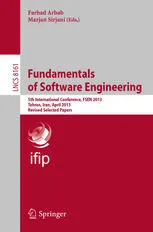
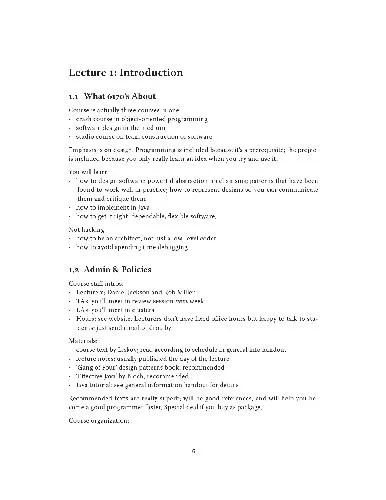
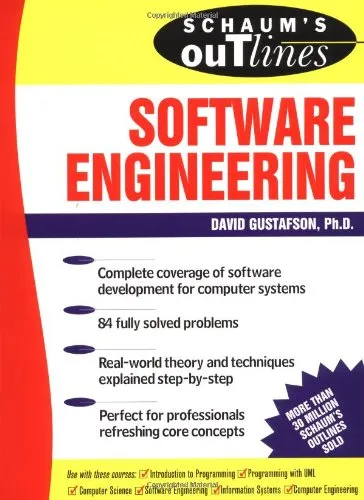
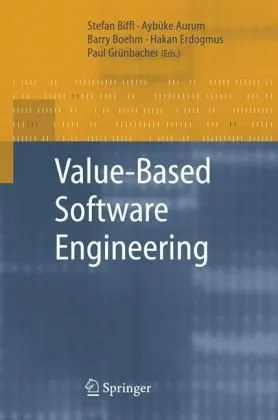

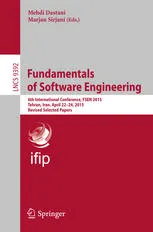
![Fundamentals Of Software Engineering, 5Th Ed [Paperback] Mall](https://s3.refhub.ir/images/thumb/Fundamentals_Of_Software_Engineering__5Th_Ed__31573.webp)

